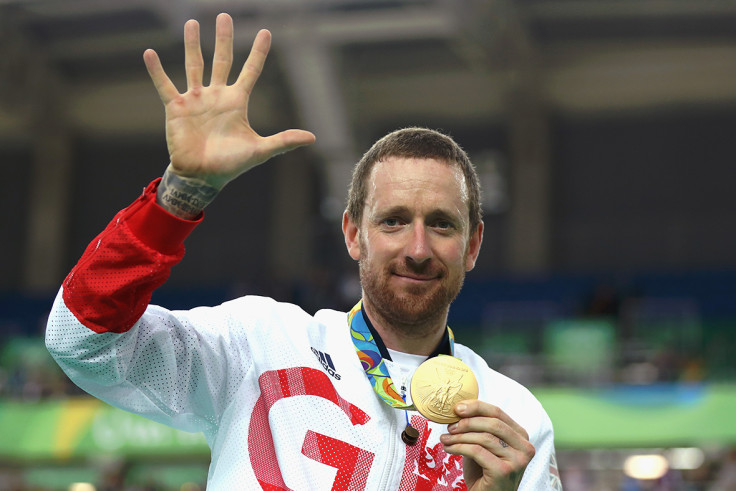Sir Bradley Wiggins says banned substance put him on 'level playing field'
Great Britain's Olympic hero took triamcinolone ahead of major races, documents reveal.
Sir Bradley Wiggins has defended his use of triamcinolone, which has been questioned by his former team doctor and other figures from sports.
The eight-time Olympic medallist's certificates approving therapeutic use exemptions (TUE), permitting him to use the drug, were leaked earlier in the month by hacking group Fancy Bears. As he received the certificates ahead of taking the drug he has broken no rules or laws.
Triamcinolone, which is on the World Anti-Doping Agency's (WADA) banned substance list, was prescribed to Wiggins to treat a "life-long allergy to pollen". His allergy had been documented and certified by the International Cycling Union (UCI).
The certificate also indicates Wiggins had already been taking "maximal therapy" for the condition.
The certificates of approval for the TUEs show that the drug – administered via an intramuscular injection – was used ahead of the 2013 Giro d'Italia, as well as the 2011 and 2012 Tour de France, the latter which was won by Wiggins.
Several other drugs were also approved for use because of his known asthma condition.
Wiggins told the BBC's Andrew Marr Show: "This was not about trying to gain an unfair advantage, this was about putting myself back on a level playing field in order to compete at the highest level."
Wiggins said as a lifelong sufferer of asthma, the drug was prescribed for allergies and respiratory problems and that use of the drug had been sanctioned by both Wada and the UCI.
According to independent medicine website Drugs.com, triamcinolone is administered for allergies that were "severe or incapacitating… intractable to adequate trials of conventional treatment in asthma".
Wada's guidelines state that a banned drug can only be used to treat acute or chronic medical conditions if there is no reasonable alternative. In the case of Wiggins, it is the third criteria – that the drug must be highly unlikely to produce any additional enhancement of performance – that has been called into question.
During the interview Marr questioned the advantage of the drug, which is known to aid recuperation and limit pain because of its anti-inflammatory effects, recalling known-doper David Millar having once said the drug was one of the most potent he had taken.
Wiggins replied: "But they were abusing that drug in that era. [They were taking] more of it, and abusing it and this was to cure a medical condition."
Wow. @BBCNewsnight's effectively calling Sir Bradley Wiggins a drugs cheat tonight.
— Piers Morgan (@piersmorgan) September 23, 2016
I look forward to hearing him clarify things. Urgently.
Before the pre-recorded interview was broadcast, Wiggins' former team doctor told Newsnight on Friday he was "surprised" to see TUEs were granted for the drug ahead of major events.
"You do have to think it is kind of coincidental that a big dose of intramuscular long-acting corticosteroids would be needed at that… exact time before the most important race of the season," said Dr Prentice Steffen. "I would say certainly now in retrospect it doesn't look good, it doesn't look right from a health or sporting perspective."
Wiggins is one of a number of athletes – including several high-profile British athletes – whose medical details were leaked by the hacking group.
Many of the athletes on the list received TUEs for asthma treatment, with athletes apparently about three times as likely to suffer from the condition than the wider population according to a 2014 study.
Athletes can be more susceptible to what is known as exercise-induced asthma, caused by rapid and heavy breathing during physical exertion.

© Copyright IBTimes 2025. All rights reserved.






















